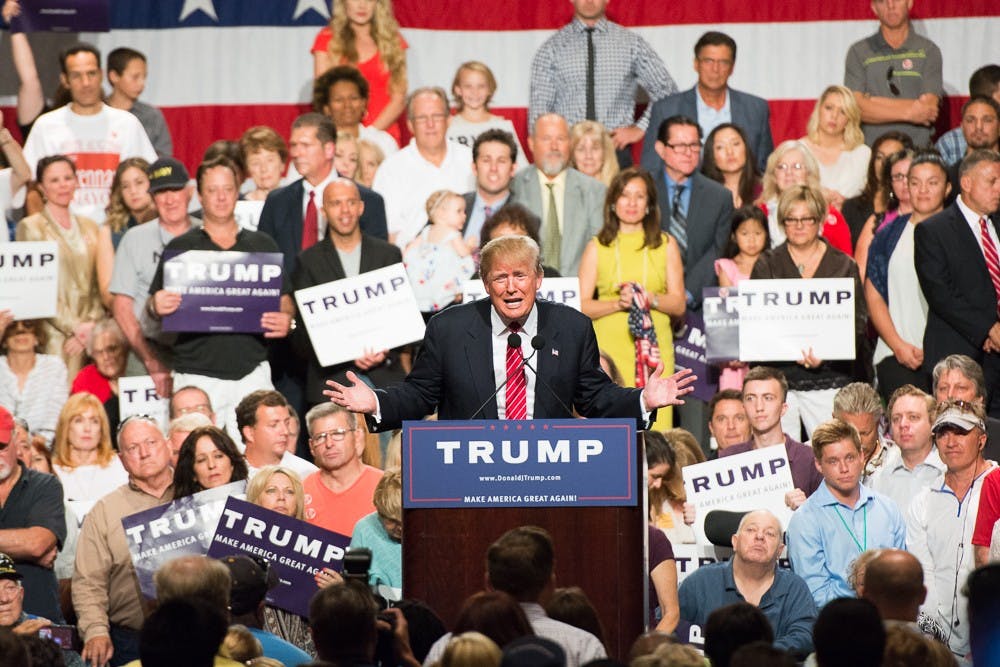Americans love a playoff system; so much so, we’ve finally implemented one into the college football contest. It’s time politics had playoffs too.
The Republican field for president is just way too cluttered and confusing. It’s even been that way for Democrats in the past; in 2008, there were eight candidates.
I propose a sort-of playoff elimination system for presidential primary elections. But, before you go and call me undemocratic, let’s just evaluate a few key issues with the current system.
The Ames Straw Poll in Iowa was a thought-to-be-important way of determining how the Iowa caucuses would turn out, but it died a quick (and rightful) death after the 2011 poll because of low voter turnout. Plus, there are too many debates to clearly pick the serious candidates out of the lineup. There is too much opportunity for flip-flopping with campaigns competing more than a year before the actual primary.
Iowa political insiders see 2016 shaping up as 'existential' race https://t.co/qVGOlKVbSs
— POLITICO (@politico) November 19, 2015
If the current system won’t cut things out, then let’s just add a check. After each debate in primary season (roughly October through January), candidates who don’t poll at or above a certain percentage will be eliminated from the race. This would continue until after the final debate before the actual primaries deciding the nominee.
I can already hear the screams about the flaws in this system, but I’ve already thought some of them through (nobody’s perfect). If it ends up being like the Democratic race this year where there are only five total candidates to begin, then the elimination rounds would only have to begin when there were about two or three debates left (there are honestly too many debates to begin with but that’s a story for another time).
In Iowa, little breathing room for some candidates in the GOP field https://t.co/DcjdxgWAOq pic.twitter.com/BbODqR6rk4
— CNN (@CNN) November 24, 2015
At the beginning of this year’s Republican race, there were a total of 16 (viable) candidates. This would be a perfect situation where the “playoff” would work. After the first debate if a candidate or two isn’t polling above a certain percentage, let’s say two-percent for the sake of argument, by the next debate they will be allowed to continue campaigning (so it’s still “democratic”), but they cannot participate in any further debates.
This encourages voters to focus on the serious candidates moving forward rather than the ones that cannot pull any more support after several weeks of campaigning, encouraging them to eventually drop out. Donald Trump seems like the crazy choice for frontrunner, but this system would have encouraged voters to help people like Marco Rubio and Jeb Bush poll higher than him. If he still polls higher, then it eliminates the possibility that Trump’s numbers are false.
First Read: Donald Trump, the post-truth 2016 candidate https://t.co/orURL7sR9V #NBC2016 pic.twitter.com/IEkOvm7QAk
— NBC News (@NBCNews) November 23, 2015
To make it more appealing (and probably more exciting), each party can pick and choose which rules of elimination they want to use. I’m not suggesting an end to our beloved democratic process, but a modification that would simplify the choice for a nominee from a large field of candidates.
Reach the columnist at abkbundy@gmail.com or follow @abkbundy on Twitter.
Like The State Press on Facebook and follow @statepress on Twitter.
Editor’s note: The opinions presented in this column are the author’s and do not imply any endorsement from The State Press or its editors.
Want to join the conversation? Send an email to opiniondesk.statepress@gmail.com. Keep letters under 300 words and be sure to include your university affiliation. Anonymity will not be granted.




